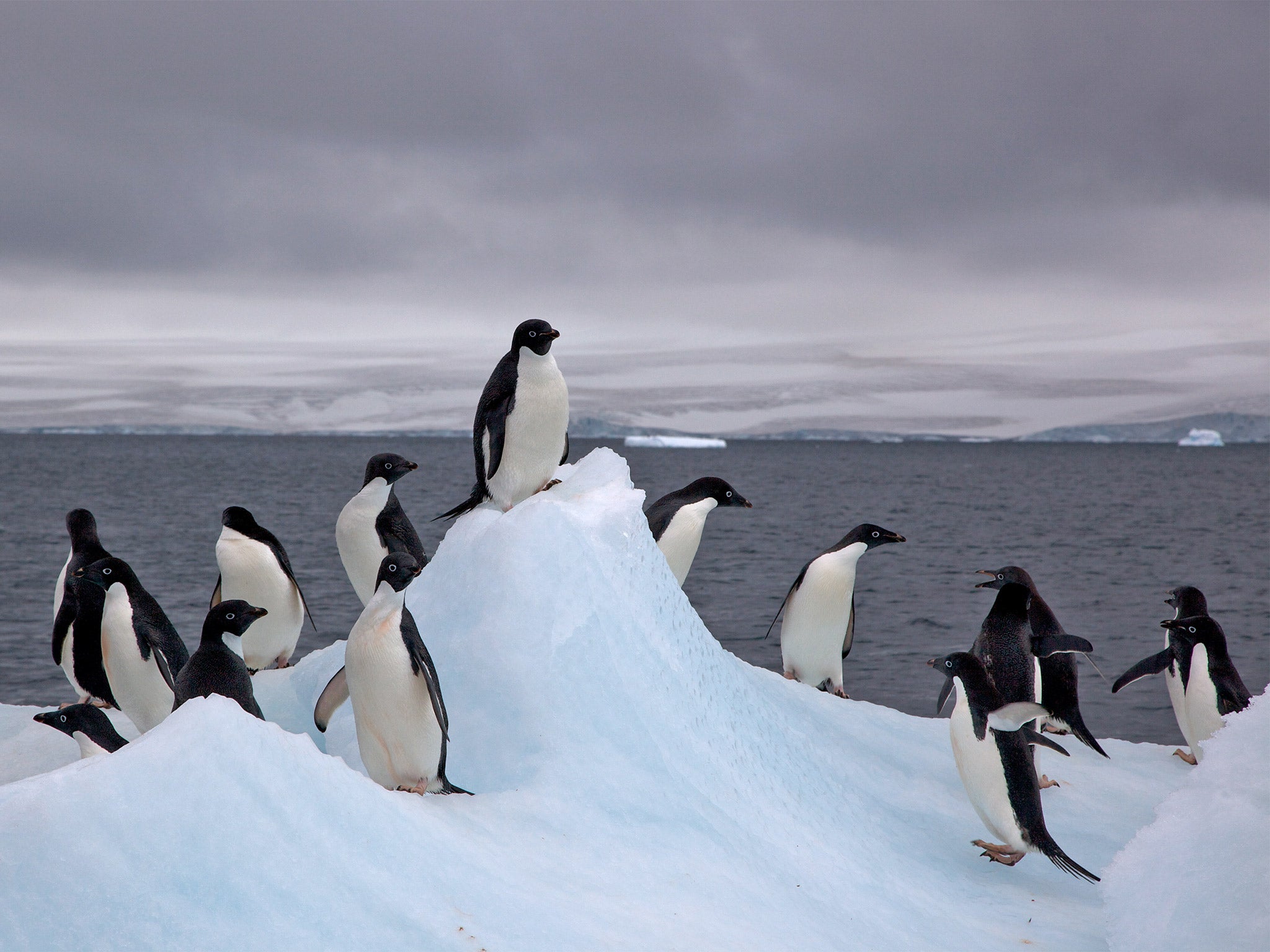Penguins presumed dead after disappearing in Antarctica may have just moved on
150,000 Adelie penguins were thought to have perished after they were landlocked by an enormous iceberg

News of their deaths prompted outcry worldwide, but the 150,000 Adelie penguins that were thought to have perished after they were landlocked by an enormous iceberg could still be alive, a scientist has claimed.
Their colony shrank drastically after the B09B iceberg – approximately the size of Rome – floated in to their habitat close to Cape Denison, a rocky point at the head of Antarctica’s, Commonweath Bay.
Researchers from Australia’s University of New South Wales suggested they had died in a paper, after witnessing the population drop from 160,000 to just 10,000 last year.
Reporting that they had seen dead penguins in the region, they predicted the colony would be extinct in just 20-years.
But now Michelle De La Rue, a penguin population researcher at the University of Minnesota in the US, said the birds could simply have waddled off to join other penguins closer to the water.
"Just because there are a lot fewer birds observed doesn't automatically mean the ones that were there before have perished," said Ms LaRue, who did not take part in the study with the Australian team.
She added: "They easily could have moved elsewhere, which would make sense if nearby colonies are thriving."
However, scientists still know little about how the penguins emigrate between colonies. Unlike their Emperor penguin cousins which breed on pack ice during the Antarctic winter, Adelie penguins live on the continent, mating between February and October.
They must also live near the sea to find the fish and krill that they eat, so while the arrival of B09B would have forced them to walk further for food, their fate remains a mystery.
Subscribe to Independent Premium to bookmark this article
Want to bookmark your favourite articles and stories to read or reference later? Start your Independent Premium subscription today.

Join our commenting forum
Join thought-provoking conversations, follow other Independent readers and see their replies